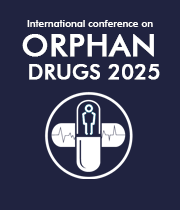Title : Ectopically expressed olfactory receptors as an untapped family of drug targets. Discovery of agonists and antagonists of OR51E1, an understudied G protein-coupled receptor
Abstract:
Over 30% of pharmaceuticals act on G protein-coupled receptors (GPCRs), the largest family of human genes (~800). About 50% of GPCRs (~400) are Olfactory receptors (ORs); these GPCRs were originally discovered in the nasal epithelium, where they mediate the sense of smell. However, members of OR family are also found in airways, blood vessels, gut and other normal tissues, in tumors and cancerous cell lines. The functions of ORs are just beginning to come to light, and some evidence indicates that they are involved in sensing metabolites. Considering the broad expression of the ectopically expressed ORs (“ectopic ORs”) in tissues, their genetic linkage with human disorders and general GPCR drug ability, they represent a vast family of promising drug targets. Yet, their pharmacological potential is untapped. Several technical obstacles have been impeding progress in OR investigation for decades. These include difficulty of OR expression in functional form, lack of antibodies and effective pharmacological tools. Having overcome some of these difficulties, we performed the first high throughput screen (HTS) of small compound libraries for molecular probes for an OR, OR51E1. We chose this OR for several reasons: its link to prostate cancer; involvement in regulation of blood pressure and unusually high evolutionary conservation (95%) between humans and other mammals, indicative of its important physiological function. We identified ~100 novel small compound agonists and several antagonists,. All the new agonists increase cAMP in a OR51E1-dependent manner, and with EC50 10-1000 lower than butyrate, the previously identified OR51E1 agonist. Some new agonists also affect prostate cancer cell proliferation. The work on characterization of new compounds and their application as tools to study the function of OR5E1 is on-going. In summary, our results demonstrate that successful discovery of drug-like compounds targeting ectopically expressed ORs is possible.


